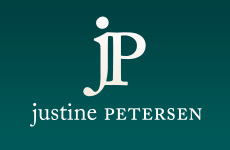From the New York Times.

By Emily Flitter
June 4, 2020
Black- and Latino-owned businesses have suffered damage from vandals and arsonists on the fringes of the protests over police brutality. Non-bank community lenders are out to protect them.
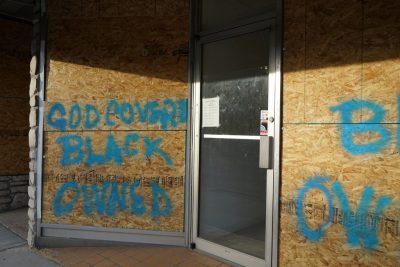
On Tuesday evening in Ferguson, Mo., a dozen people formed a human chain around Reds The One and Only BBQ, a restaurant. Vandals had smashed other storefronts in the area amid protests over the killing of George Floyd in police custody, but Reds was still standing.
By forming a protective line around the restaurant, the group was hoping to discourage any further violence. For two hours, members of the chain kept vigil. But they were neither hired guards, nor friends or relatives of the restaurant’s owner, Red Harris. They were employees of Mr. Harris’s lender, a community organization called Justine Petersen.
Galen Gondolfi, a senior loan counselor at Justine Petersen, said the gesture was largely symbolic because his group was not set up to provide physical protection. But nonetheless, he said, it was a way to show clients its commitment “literally and figuratively.”
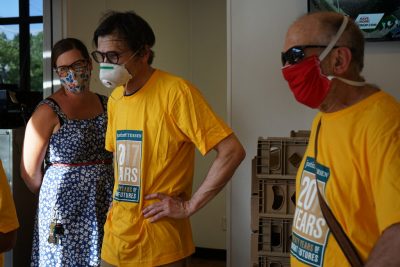
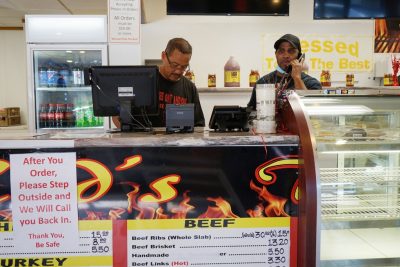
Groups such as Justine Petersen, which mostly lend to minority-owned businesses across the United States, are not regular banks. They are called Community Development Financial Institutions, and they use a combination of government funds and private donations to seed businesses that banks won’t deal with because they view their owners as too poor and too disconnected from the financial system to qualify for standard loans.
Many C.D.F.I.s, which first came into existence in the early 1970s, evolved out of groups that were formed to help minorities recover from attacks — like the 1921 massacre of black Americans in Tulsa, Okla. — that have occurred regularly throughout America’s history. More recently, during the coronavirus pandemic, such groups have been the go-to lenders for minority business owners who could not find a bank to help them tap a federal government aid program.
C.D.F.I.s, which are often nonprofits, offer their borrowers far more than just cash. They also walk them through the myriad paperwork required to get their businesses up and running, offer them management training and sometimes even provide spaces from which to launch.
But the looting and damage that have marred protests in the past week have added a new set of tasks for many of these organizations, akin to those of a security guard or emergency workers. In places like Ferguson, Minneapolis and Wilmington, Del., where violent groups have destroyed property by smashing windows and setting fires, representatives from these lenders have been the first to make contact with devastated business owners and help organize their defense.
“We’re like the National Guard for small businesses,” Mr. Gondolfi of Justine Petersen said. “I love the idea of us being dispatched.”
His organization has long had a presence in Ferguson. When vandals destroyed businesses there during protests after the killing of an unarmed local teenager, Michael Brown, by a police officer in 2014, the group made small loans to around two dozen businesses to help them get up and running again.
“Historically, events like these have a 10- to 20-year impact,” said Paul Calistro, the founder of Cornerstone West, a community development organization in Wilmington. Mr. Calistro is working with other groups to contact small businesses that were damaged last weekend and provide the funds they need to rebuild.
But, he said, “it’s not just in money — it’s in time.”
C.D.F.I.s have helped revive poor neighborhoods, replacing empty storefronts with active commercial spaces, increasing local economic activity, building residents’ wealth and reducing crime. Because they make a wide variety of loans, including housing loans, they amass deep knowledge of their neighborhoods and can tailor their activities to the area’s needs.
Over the past 35 years, they have made loans that helped start more than 400,000 small businesses around the country, according to the Opportunity Finance Network, the trade group that represents them. Around 85 percent of their borrowers are minorities, according to the trade group’s data. Their lending, which is a mix of small-business loans and loans to housing and community facility projects, has totaled more than $74 billion over that time.
In Minneapolis, three organizations that focus on minority businesses have helped transform the Midtown neighborhood from a depressed area with few active businesses to a trendy spot where small businesses flourish and city residents flock. The charitable aspect of the groups’ missions has helped to keep the ills of gentrification at bay.
But the current violence is threatening that progress.
Minneapolis is where the bulk of the destruction has occurred so far, and local officials said it was the result of premeditated attacks on black- and Hispanic-owned businesses.
Jeff Hayden, a state senator whose district includes the Midtown neighborhood, said Minnesota officials found evidence that fire-starting materials had been stashed in the neighborhood ahead of recent planned protests and that businesses had been marked for attack.
“Based on what the governor is able to share with us and based on what we see on the ground, there was definitely a coordinated attack,” Mr. Hayden said in an interview on Monday. “It was clear that they were going after ethnic businesses.”
Rolando Borja, whose firm, Integrated Staffing Solutions, helps connect Minneapolis-area companies with workers who have often just arrived from Puerto Rico or from other countries, was relieved when, at first, his storefront in Midtown was spared. After seeing footage on the nightly news of nearby windows breaking and buildings burning, Mr. Borja ventured out on Wednesday last week to check on his space and found it covered in graffiti but otherwise intact. At 5 the next morning, however, an employee called him in tears: His building had been burned to the ground.
Meda, the C.D.F.I. that lent Mr. Borja money when he started out 10 years ago and helped him get aid under the federal government’s Paycheck Protection Program when the pandemic forced him to shut down this year, is where he will turn to again to rebuild.
“Meda, for me, has been a partner through the whole life of my business, helping me out to have access to capital, access to legal advice, business consulting, everything,” Mr. Borja said.
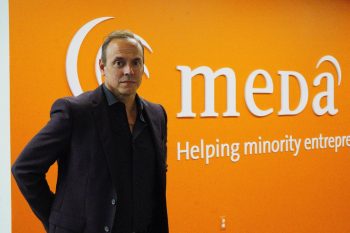
Alfredo Martel, chief executive of Meda, said his staff had been walking the streets assessing the damage. “We are at this point like economic first responders.” But, he added, “We’re not cops, we’re not firemen or E.M.T.s.”
He is appealing to anyone in the neighborhood who has sustained damage to call Meda and report experiences and needs, and says Meda is prepared to help them start again from the ground up. After all, Mr. Martel pointed out, his group was formed to help the same neighborhood rebuild itself after riots over police brutality destroyed it 53 years ago, in the summer of 1967.
While Meda’s staff is looking to help businesses rebuild, another Midtown development organization is trying to prevent the ones still standing from being attacked again. Its founder, Mihailo Temali, was so worried about the premeditated aspect of the attacks that he asked The New York Times not to name his organization.
Mr. Temali has been helping organize neighborhood watches, inspecting newly painted graffiti for signs that it was meant to designate a particular location for an attack and encouraging the business owners his group has funded to defend their spaces by making sure they have someone stationed there each night.
